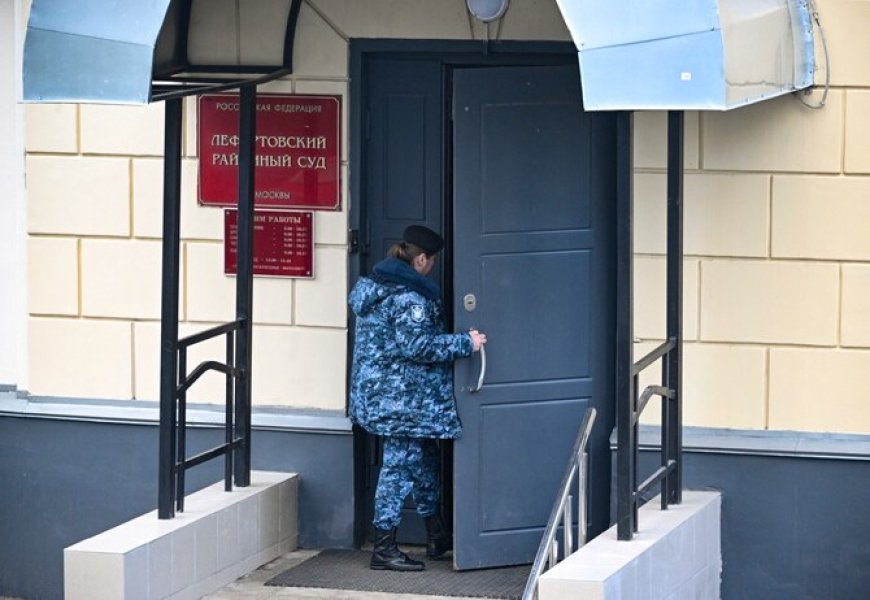U.S. Citizen Eugene Spector Faces 15-Year Espionage Sentence in Russia Amidst Heightened Tensions
A Moscow court handed out a 15-year prison term to American Eugene Spector for espionage in a high-profile case that highlights the widening gap between the US and Russia. In what many perceive as politically motivated judicial proceedings against foreign nationals in Russia, the ruling, as published by Russia’s state news agency RIA, signifies a considerable intensification.

A Moscow court handed out a 15-year prison term to American Eugene Spector for espionage in a high-profile case that highlights the widening gap between the US and Russia. In what many perceive as politically motivated judicial proceedings against foreign nationals in Russia, the ruling, as published by Russia’s state news agency RIA, signifies a considerable intensification.
The espionage allegations were brought against Eugene Spector, a Russian national who had previously immigrated to the US and was serving a 3.5-year term for bribery. A former chair of the board at the cancer-treatment medicine manufacturer Medpolymerprom Group, Spector had previously confessed to facilitating bribery to an aide of a former Russian deputy prime minister. Even though he pleaded guilty to the bribery charge, his espionage conviction adds a much darker dimension to his legal woes, casting doubt on the veracity of the evidence and the reasons behind the accusations.
No one knows what happened to the espionage charges that were first filed against Spector in August 2023. Few specifics regarding the purported acts of espionage have been disclosed by Russian authorities, leaving the possibility of politically driven accusations open to debate. Timed to coincide with a high point in tensions between the US and Russia, the two nations have been leveling accusations of espionage and involvement in several key areas.
Skeptics contend that Russia's geopolitical agenda involves weaponizing cases such as Spector's. Numerous non-citizens, including scholars and journalists, have been subjected to comparable allegations in the past few years, frequently with scant evidence. Since Western nations have also increased their inspection of Russian nationals abroad, such situations frequently appear to reflect a tit-for-tat dynamic.
Given Spector's occupation, his case is especially noteworthy. It could appear that his work on medications to treat cancer, as a prominent player in the pharmaceutical sector, has little to do with intelligence and espionage. However, given the current geopolitical atmosphere, even prominent figures in the scientific and economic communities can be implicated in espionage allegations.
The United States sees Spector's sentencing as adding fuel to the fire of tensions in its relationship with Russia. There has been increasing pressure on the Biden administration to secure the release of American citizens held overseas, especially those facing espionage charges. Diplomatic attempts are hindered by the lack of progress and the strong stance of the Kremlin.
The conviction of Spector has far-reaching concerns regarding the treatment of foreign nationals and expatriates in Russia, which go beyond the political ramifications. His story should serve as a cautionary tale to those with connections to either country, drawing attention to the perils of dealing with Russia's political and legal system in the midst of rising geopolitical tensions.
There will be growing demands for more openness in Russia's courts as the Spector case progresses, and it will also draw attention from throughout the world. The 15-year prison term is a sobering reminder of what it means to be caught in the middle of international power battles. Justice is delicate in the midst of global animosity, and it is unclear whether Spector's conviction is founded on actual evidence or merely a geopolitical negotiating tool.













































